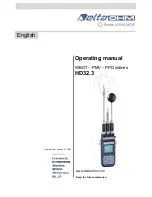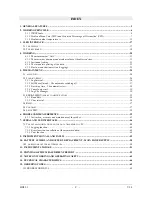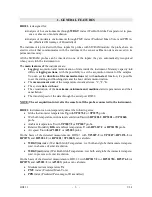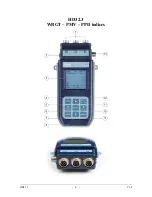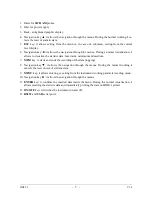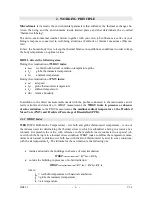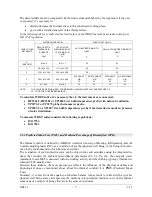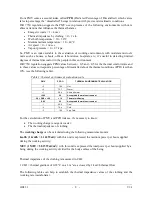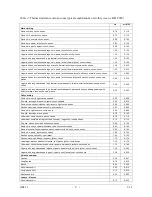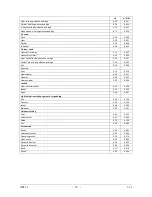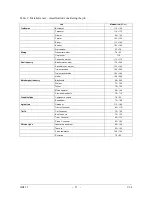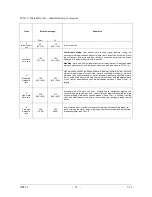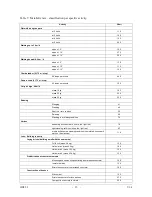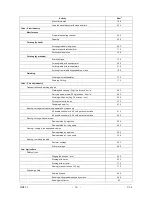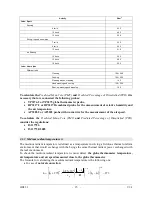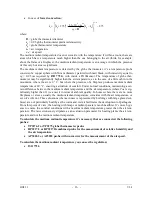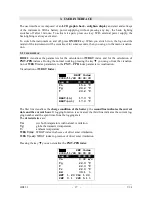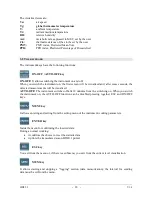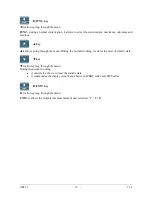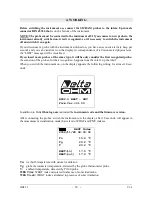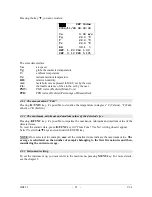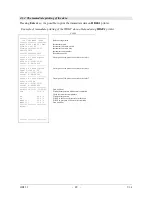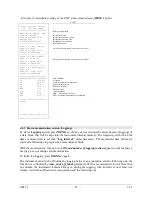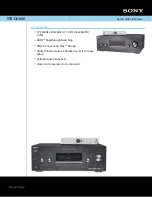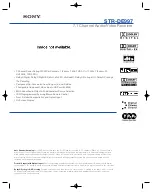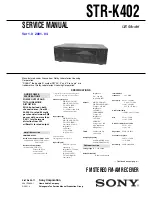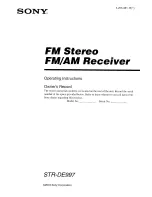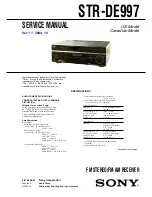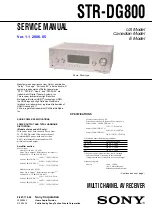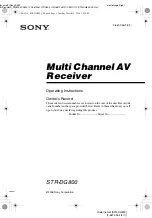
HD32.3
- 8 -
V1.4
From PMV comes a second index called
PPD
(Predicted Percentage of Dissatisfied) which calcu-
lates in percentage the “dissatisfied” beings in relation with precise microclimatic conditions.
ISO 7730 regulation suggests the PMV use in presence of the following environments with vari-
ables variations that influence the thermal balance:
•
Energetic waste = 1 ÷ 4 met
•
Thermal impedance by clothing = 0 ÷ 2 clo
•
Wet bulb temperature = 10 ÷ 30°C
•
Medium radiant temperature = 10 ÷ 40°C
•
Air speed = 0 ÷ 1 m/sec
•
Vapour pressure = 0 ÷ 2,7 kpa
So, PMV is an index suitable to the evaluation of working environments with moderate microcli-
mate such as houses, schools, offices, laboratories, hospitals, etc.; it’s useful in detecting limited
degrees of thermal discomfort in the people in this environment.
ISO7730 regulation suggests PPM values b 0,5 and - 0,5 for the thermal comfort state and
to these values correspond a percentage of dissatisfied about the thermal conditions (PPD) less than
10% (see the following table).
Table 1: thermal environment evaluation scale
PMV
PPD %
THERMAL ENVIRONMENT EVALUATION
+3 100
Hot
+2 75,7
Warm
+1
26,4
A little bit warm
+0,85
20
Acceptable thermal environment
-0,5 < PMV < +0,5
< 10
Thermal well-being
-0,85
20
Acceptable thermal environment
-1 26,8
Cool
-2 76,4
Cold
-3 100
Very
Cold
For the calculation of PMV and PPD indexes, it’s necessary to know:
•
The working charge (energetic waste);
•
The thermal impedance of clothing.
The
working charge
can be calculated using the following measurement units:
kcal/h (1 kcal/h = 1.163 Watt):
with this unit is expressed the medium power per hour supplied
during the working activity;
MET (1 MET = 58.15 Watt/m
2
):
with this unit is expressed the total power per hour supplied by a
being during the working activity divided for the body surface of the being.
Thermal impedance of the clothing is measured in CLO;
1 CLO = thermal gradient of 0.18 °C on a 1 m
2
area crossed by 1 kcal/h thermal flow
The following tables can help to establish the thermal impedance values of the clothing and the
working rate (metabolism).
Summary of Contents for HD32.3
Page 4: ...HD32 3 4 V1 4 HD32 3 WBGT PMV PPD indices...
Page 52: ...HD32 3 52 V1 4 12 PRINTING OF THE MEASUREMENT REPORT Norm ISO 7243 Norm ISO 7243...
Page 53: ...HD32 3 53 V1 4 Warm environments Norm ISO 7243...
Page 54: ...HD32 3 54 V1 4 Warm environments Norm ISO 7243 Norm ISO 7243...
Page 55: ...HD32 3 55 V1 4 Warm environments Norm ISO 7243...
Page 56: ...HD32 3 56 V1 4 Warm environments Norm ISO 7243...
Page 57: ...HD32 3 57 V1 4 Warm environments Norm ISO 7243...
Page 58: ...HD32 3 58 V1 4 Moderate environments Norm ISO 7730 Norm ISO 7730...
Page 59: ...HD32 3 59 V1 4 Moderate environments Norm ISO 7730...
Page 60: ...HD32 3 60 V1 4 Moderate environments Norm ISO 7730...
Page 61: ...HD32 3 61 V1 4 Moderate environments Norm ISO 7730...
Page 62: ...HD32 3 62 V1 4 Moderate environments Norm ISO 7730...
Page 63: ...HD32 3 63 V1 4 Moderate environments Norm ISO 7730...
Page 64: ...HD32 3 64 V1 4 Moderate environments Norm ISO 7730...
Page 71: ......

